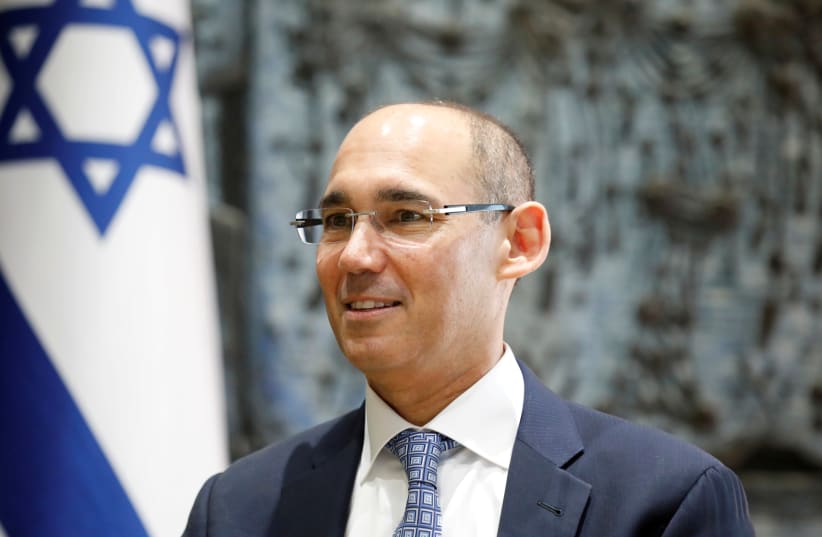Israel’s economy is recovering quickly from the COVID crisis, but interest-rate increases are some way off, given that inflation is expected to stay well contained, according to Bank of Israel Governor Amir Yaron.
Policy-makers have once again begun to focus on inflation after the consumer price index turned positive in March, for the first time in a year, at an annual rate of 0.2%. The rate is projected to enter the official 1%-3% annual target range soon and stabilize around 1.6% for the next few years, based on bond yields.
A key question is how much of the gain stems from bottlenecks in the economy and adjustments in supply and demand, Yaron said.
“We’re not seeing a risk of any eruption in inflation that is detrimental to the economy and therefore that allows us to continue to be accommodative, and I think it’s going to be very market-based in terms of where and how fast we see these processes come through the economy,” he told Reuters.
“At some point, depending on economic activity, inflation, financial stability, etc., those will be the considerations that will enact a change in the primary focus point for a change in the [interest-rate] stance,” he added.
Israel’s benchmark interest rate has stood at a record low of 0.1% for more than a year after a single 15-basis-point cut in April 2020 at the outset of the coronavirus outbreak.
Despite a spike in unemployment caused by three lockdowns aimed at limiting the pandemic’s spread, the central bank opted to hold the line on rates, preferring other measures to keep credit flowing, such as buying bonds and offering cut-rate loans to banks.
The economy contracted a less-than-expected 2.6% in 2020, and Yaron said growth remained on track to hit the bank’s 6.3% estimate in 2021, “as long as there is no new mutation that is detrimental.”
The economy is almost fully open, with more than half of the population fully vaccinated.
“Israel’s economy is bouncing back very fast,” Yaron said. But while the jobless rate has gradually dipped back to 8% from more than 25% last year, pre-virus levels of around 4% may be tough to attain, as some jobs have been eliminated because companies have become more efficient as a result of the pandemic.
Yaron has called for more training while the economy transforms. But the political situation is also in flux following four inconclusive elections in two years and a possible fifth election later this year.
As a result of the political squabbling, Israel is still using a pro-rated version of the 2019 state budget that was approved in mid-2018.
In the short term, the lack of a budget is not a big issue, Yaron said. But Israel requires reforms in education, infrastructure and regulation that are harming the private sector, he said.
Israel needs investments of 2% of economic output for several years, particularly in education, where Israel scores poorly among OECD peers, which will boost Israel’s economy over the next decade, Yaron said.
“Time is money,” he said. “We are losing time in putting these reforms in place, and the gaps are only being extended.”
Nevertheless, foreign investment in Israel remains strong and has helped to underpin the shekel. The Bank of Israel in January had said it would buy $30 billion of foreign currency in 2021 after buying $21b. last year, but the shekel is only down 1.2% versus the dollar so far this year.
Over the first four months of 2021, the bank has bought nearly $20b. of forex.
“We won’t be shy extending it if needed and depending on economic conditions and activity,” Yaron said, dismissing Israel’s forex reserves nearing $200b. as a big issue.
Similarly, the bank was in no rush to decide whether to end its program of buying government bonds, in which it has bought NIS 62.3b. out of a planned NIS 85b., he said.
A tapering in recent months has been a “function of markets,” Yaron said, adding that guidance on its quantitative-easing (QE) program would come in mid- to late summer.
“We will know more where the economy is somewhere around summer,” he said, adding that at its current pace, the QE could last another eight months.
“We also need to see what is happening to [the economy and bond yields in] the rest of the world,” Yaron said.
